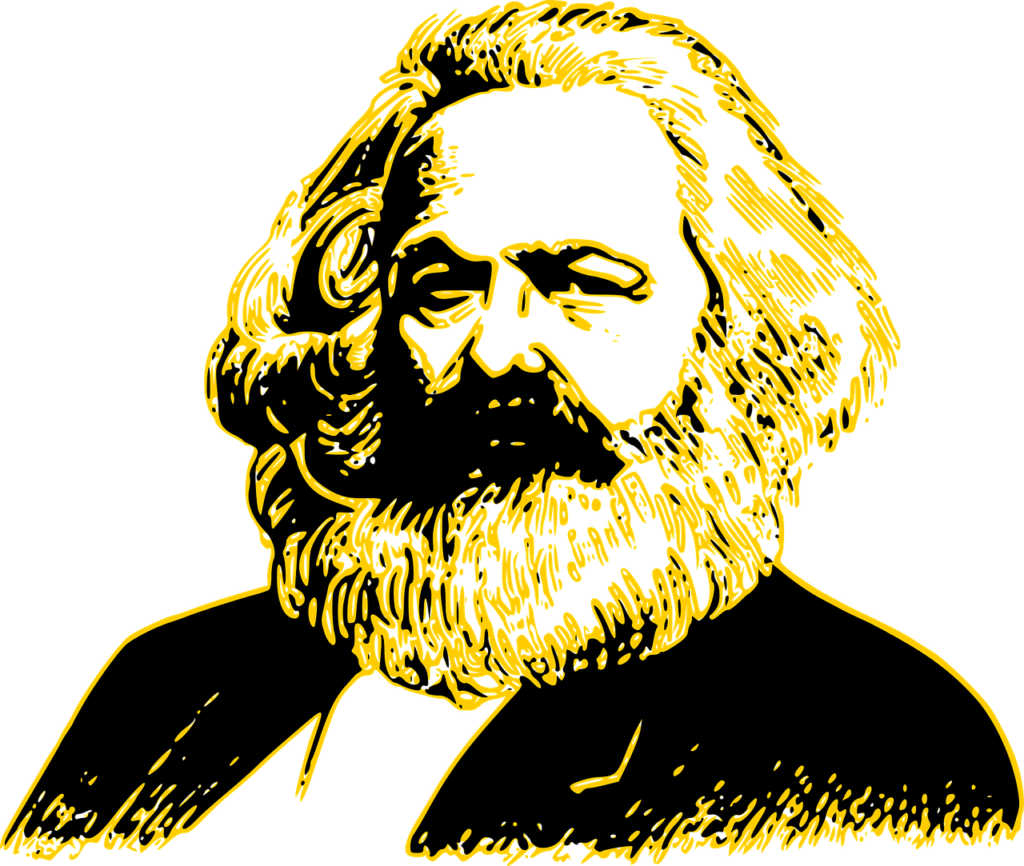Karl Marx’ Theory of Surplus Value is a renowned theory in Political Science. Karl Marx is a famous philosopher, economist, and political theorist, introduced numerous groundbreaking ideas during his lifetime. One of his most influential concepts is the theory of surplus value, which provides a critical lens for understanding capitalist exploitation and inequality. This blog post delves into the intricacies of surplus value, exploring its definition, significance, and implications for workers and society as a whole.

“History calls those men the greatest who have ennobled themselves by working for the common good; experience acclaims as happiest the man who has made the greatest number of people happy.”
-Karl Marx
Understanding Surplus Value:
At its core, surplus value refers to the additional value created by workers beyond what is necessary to cover their own wages and sustain their livelihoods. Marx argued that in a capitalist system, labor power is treated as a commodity, bought and sold in the labor market. The capitalist, who owns the means of production, employs workers to produce goods and services.
However, according to Marx, the value of labor power (wages) is typically less than the value created by the workers through their labor. This difference between the value produced and the wages paid constitutes the surplus value, which is appropriated by the capitalist as profit.
Exploring Exploitation:
Marx’s theory of surplus value sheds light on the exploitative nature of capitalism. He argued that capitalists generate profits by paying workers less than the value they contribute to production. This surplus value extraction, Marx believed, was the fundamental source of economic inequality and the root cause of class struggle.
The Exploitation Process:
To grasp the concept more concretely, let’s explore the exploitation process within a capitalist system:
- Commodity Production: Workers are employed by capitalists to produce goods or services.
- Value of Labor Power: Workers sell their labor power (a commodity) to capitalists in exchange for a wage. The value of labor power is determined by the socially necessary labor time required to produce the goods and services necessary to sustain workers’ lives.
- Creation of Surplus Value: Workers, through their labor, produce goods and services that have a value exceeding their own wages.
- Appropriation of Surplus Value: Capitalists, who own the means of production, claim the surplus value as their profit. This surplus value accumulation is achieved by paying workers less than the full value they create.
Significance of Surplus Value:
Understanding surplus value is crucial for comprehending the dynamics of capitalist economies and the inherent power imbalances between capitalists and workers. Marx argued that the pursuit of surplus value accumulation drives capitalists to exploit workers further, resulting in worsening conditions, prolonged working hours, and intensified alienation.
Implications for Workers and Society:
- Economic Exploitation: Surplus value enables capitalists to accumulate wealth at the expense of workers, perpetuating economic inequality.
- Class Division: The theory of surplus value forms the foundation of Marx’s analysis of class struggle, as the exploitation of surplus value creates a divide between the bourgeoisie (capitalists) and the proletariat (working class).
- Labor Alienation: Marx argued that the extraction of surplus value alienates workers from their labor, as they are merely treated as a means to generate profit, rather than individuals with creative agency.
- Capitalist Crises: Marx theorized that the inherent contradictions and imbalances resulting from the pursuit of surplus value accumulation would lead to economic crises and cycles of boom and bust.
Conclusion:
Karl Marx’s concept of surplus value provides a critical framework for understanding the exploitative nature of capitalism. By shedding light on the dynamics of profit extraction and economic inequality, surplus value allows us to question the inherent power imbalances between capitalists and workers. While Marx’s theories have faced criticism and evolved over time, the concept of surplus value remains a potent tool for analyzing and critiquing capitalist economies, inspiring discussions on alternative economic systems and the pursuit of a more equitable society.
You Can Read: Karl Marx’ theory of Class Conflict










